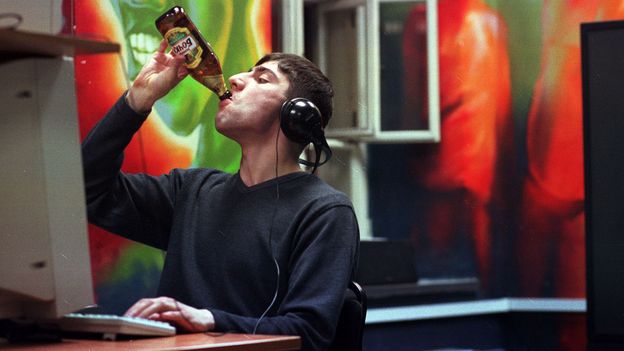Maximisers: ‘make it perfect’
If you’re a maximiser, you’re likely to weigh choices carefully to assess which is the best one. This can, of course, lead to a great outcome – when maximisers make decisions, they’re likely very informed. On paper, their decisions may look like the most logical or efficient, since they’ve spent so much time deliberating possibilities and potential results.
But there are also drawbacks. These are people who “have trouble making decisions because they’re trying to get it perfectly right”, says Stephanie Preston, professor of psychology at the University of Michigan. “They want to maximise the outcome, so they lose a lot of time in the process.”
For example, say you’re picking out a new television. If you’re a maximiser, you might take a very long time assessing five different models, trying to decide which one will maximise your benefit. Do you get the one with the biggest screen, or save by choosing the cheapest? Going back and forth in your head over which one is the ‘correct’ one can lead to decision paralysis, leaving the person feeling like they still don’t have enough information to make the best choice, and maybe never will.
Once you finally decide, however, the maximiser mentality can also trigger decision regret.
“The process of deliberating and choosing one option after seriously considering others is not only very time-consuming, but also associated with post-decision regret and counterfactual thinking,” says Sally Maitlis, professor of organisational behaviour and leadership at Oxford University’s Saïd Business School. “How would it have been to have chosen the other thing?”
That means once you buy that TV and you’re sitting there watching it, you may start second-guessing yourself: “I’m spending so much time at home these days. Shouldn’t I have just bought the more expensive one with the bigger screen?” In fact, a series of studies showed that maximisers were more likely to be depressed, overly perfectionistic and prone to regret or self-blame.
Satisficers: ‘it’s good enough’
At the other end of the spectrum, you have ‘satisficers’: people who would rather make decisions quickly. Instead of the ‘best’ choice, they’re fine with what’s acceptable. The term combines the words ‘satisfy’ and ‘suffice’ and was first coined back in the 1950s by American psychologist Herbert Simon.
“The opposite of maximising is satisficing – someone who realises there are constraints, and you can’t solve all of them, and you definitely can’t solve all of them quickly,” says Preston. “So, ‘good enough’ is the characteristic of decision-making for satisficers.”
Unlike maximisers, satisficers don’t need a lot of options or information. They also rely less on outside sources, meaning they’re less likely to scour online reviews, or get as much information as possible when making decisions. They make decisions faster, weigh fewer choices and go with their gut.
“At restaurants, for example, I almost never look at the full menu,” says Ellen Peters, director of the University of Oregon’s Center for Science Communication Research, whose work focuses on decision-making. “I look around and see what other people have ordered. I listen to what people at my table are ordering. And then I choose among those entrées and appetisers. I satisfice, and I always end up with a good dinner.”
The drawback here is that satisficers may reach a decision quickly, but it may not necessarily be the ‘best’ outcome that gives them the maximum return. A 2006 study, for example, showed that recent university graduates with high maximising tendencies found jobs that paid starting salaries that were 20% higher than those of their satisficing peers. (That being said, maximisers reported being less satisfied with those jobs.)








